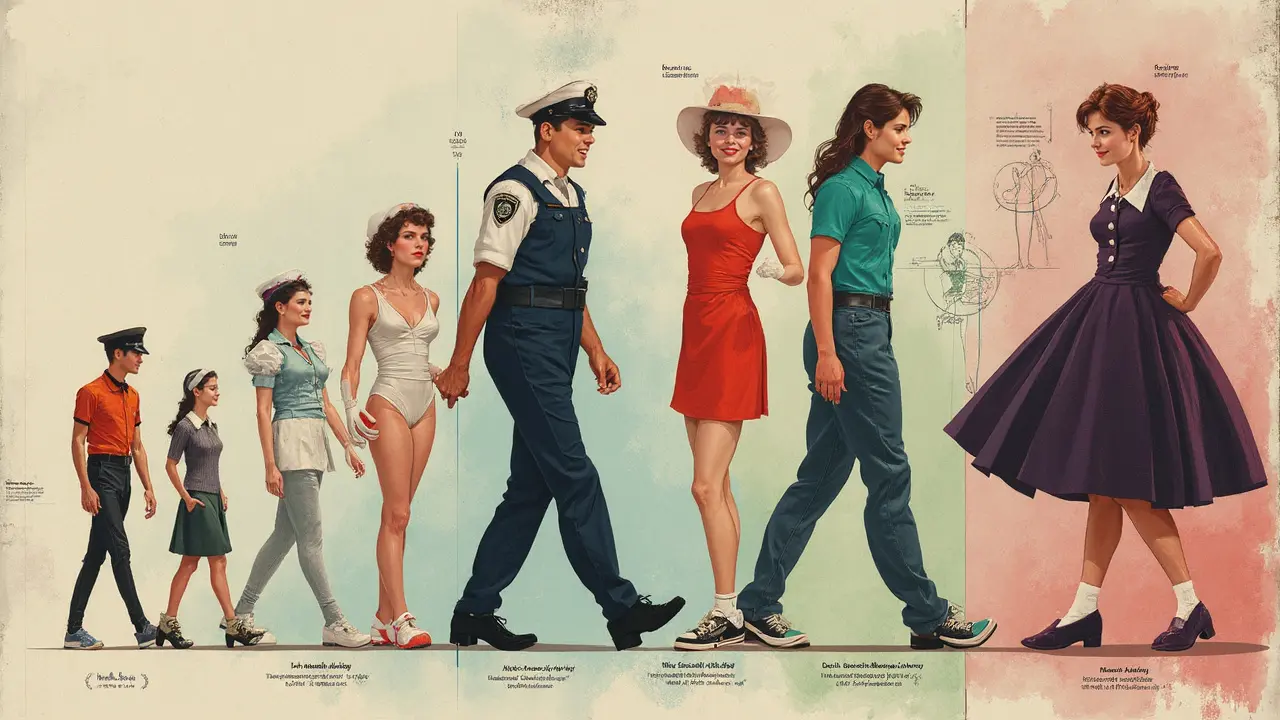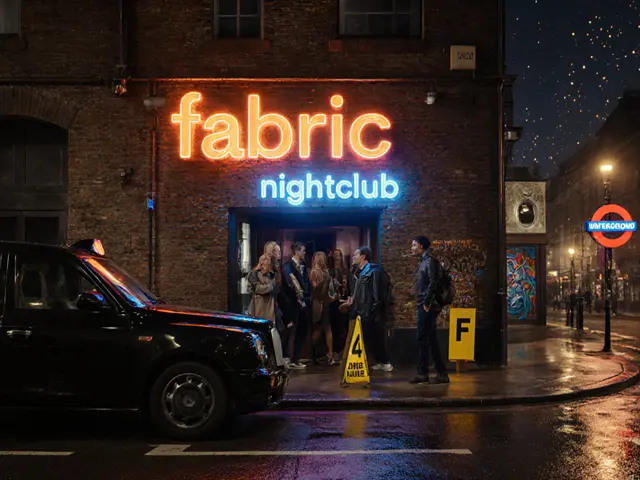You ever notice how sliding into a uniform or costume can flip a switch? One minute you’re battling Monday, the next you’re a confident firefighter with a mission. People slip into roles every day. Sometimes, it’s for Halloween. Other times, it’s just because it feels good to break free from the usual. Uniforms and costumes aren’t just for kids or theme parties—they’re a shortcut to excitement, boosted confidence, and genuine connection. Let’s talk about why this works and how you can make the most of it, both for yourself and the people you care about.
The Powerful Psychology Behind Uniforms
Why do uniforms change how we feel? It’s not all in your head. Scientifically, the moment you put on a uniform—whether it’s a medical coat, a police shirt, or a superhero cape—your brain registers the change. Psychologists call this “enclothed cognition.” Basically, when you wear something, you start to think and feel differently. There’s a wild stat from a 2012 study out of Northwestern University. The researchers found that people wearing lab coats performed better on attention tests than those wearing regular clothes. Why? The coat triggered associations with being careful and smart, so wearers subconsciously acted the part.
There’s more at play than simple fun. Uniforms strip away some of the daily insecurities and make you step into a role. If you’ve ever hosted a party and found your introverted side vanish the second you put on a magician’s costume, you know what this means. You get to feel powerful, playful, or nurturing—sometimes all at once. For couples, it can be transformative. Relationship therapists say new experiences forge stronger bonds. When people role-play or wear costumes together, their brains light up with novelty, excitement, and laughter. That’s a recipe for connection, not awkwardness. The little bit of make-believe shakes up old routines and encourages you to see—and be—something new.
The effect isn’t limited to adults. Think about kids wearing superhero cloaks. They start running faster and standing taller. Grown-ups aren’t so different; we just hide it better most days. Want to tap into confidence? Try the trick many high-level presenters swear by: Dress for the job (or role) you want, not the one you have. When you wear a crisp chef coat, office suit, or military jacket—even if it’s just for fun or personal time—you step out of your doubts. Uniforms don’t just mask insecurity; they unlock a new way of being.
Check out this table for some wild figures about people and uniforms:
| Situation | Percent Reporting Increased Confidence |
|---|---|
| Wearing a Professional Uniform at Work | 68% |
| Wearing a Costume for Social Events | 61% |
| Roleplay or Theme Nights with Partner | 77% |
So the takeaway? Costumes and uniforms are permission slips—to laugh, to imagine, and to step up confidence on command.
Spicing Up Relationships With Costumes
Here’s where things get exciting. Costumes and uniforms are among the oldest relationship hacks out there. Historical love letters reference “playing roles,” and court jesters were famously the original cosplayers of their time. In modern relationships, the spark can fade when life turns to routine. Research published in the Archives of Sexual Behavior found that couples who engage in playful activities—like dressing up—have longer-lasting relationships and more satisfying experiences together. Bringing costumes into your relationship isn’t just about bedroom games (though, sure, it works wonders there too). It creates an instant sense of adventure, trust, and unpredictability. Each person gets a chance to be both the performer and the audience.
If you need a push to try it, here’s a basic guide to get started:
- Pick a theme that feels natural—doctor/nurse, detective/suspect, superhero/sidekick. Don’t force it. Start with something you both can laugh about.
- Keep it simple. You don’t need Hollywood costumes. Even a basic white shirt and toy stethoscope can flip the script.
- Set ground rules. Both partners should feel comfortable. Talk about what you want to try and what’s off limits.
- Lean into the character. Speak, act, and even move as the role demands. Let yourself be a little silly—that’s half the charm.
- Switch roles. Sometimes trying on a new persona gives both people a new perspective.
It can also break down awkwardness. Surveys from 2024 found over half of couples who tried costumes admitted it made tough or embarrassing conversations way easier. They felt less judged and more willing to share what they wanted. The playful setup encourages honesty, laughter, and experimentation. You don’t have to keep it all about romance, either. Sometimes, just clowning around as pirates washing the dishes or as 80s aerobics instructors grocery shopping can reboot your bond. The point: it’s not about pretending—it’s about permission to connect differently, to make memories that outlast the routine.
And if you’re single? Costumes still pack a punch. Plenty of self-help experts recommend “dressing up” for yourself. Having a themed night alone, or even going to a movie marathon dressed as your favorite character, can break loneliness and crank up positive self-talk. Don’t overthink it. Have fun, laugh at yourself, and watch how your mood flips almost instantly.

Beyond the Bedroom: Everyday Ways to Use Uniforms and Costumes
Lots of folks peg costumes as bedroom-only territory or one-off party gags. That’s missing out on their daily power. Uniforms can fire up focus, teamwork, and good vibes even in regular spaces. Schools have started using superhero-themed days, and reports show jumps in student engagement and fewer discipline problems. Offices that hold costume contests or “theme Fridays” see boosts in creativity and even productivity. The effect? When you’re playing, your guard drops, and your brain lights up for learning, connecting, and problem solving.
One way to use uniforms for self-improvement: dress for energy boosts. Ever see athletes put on their team jerseys before a workout, even if they’re just heading to the gym? Studies show wearing performance-oriented gear actually helps you work harder. That’s because clothes become cues for mental and physical readiness. Next time you need to tackle a tough talk, try putting on something that represents confidence for you—like a favorite jacket or shoes. These “power outfits” are a thing. CEOs, athletes, and all kinds of doers swear by them.
Costumes also invite special connections in non-romantic relationships. Parents and teachers who join in themed play report stronger bonds with kids. Family movie nights in costume, silly themed dinners, and neighborhood scavenger hunts dressed as time travelers—these aren’t just photo ops, they’re memory factories. New neighbors? Host a superhero barbecue. Struggling to connect with a teenager? Let them pick a movie and dress up together. You instantly move from awkward silence to laughs and real talk. Want to add a spark to your daily routine? Challenge yourself to a week of themed nights—pajamas on Monday, formal wear for Tuesday dinner, and so on. It shakes up habits and keeps your environment fresh.
Let’s not forget about the solo benefits. Dressing up—even when no one’s around—has been linked to increased motivation, better self-image, and lower reported stress on tough days. Whether you’re rocking a chef’s apron for a solo kitchen experiment or donning hiking gear for a local park walk, uniforms and costumes turn the ordinary into the adventurous. It’s about permission to escape the rut, even for an afternoon.
Tips for Choosing the Right Costume or Uniform
The world of costumes is massive. There’s a big difference between raiding the Halloween rack at a chain store and picking something you’ll actually enjoy using. The costume that works best is the one that fits your personality, body, and mood. Here’s what you need to think about when picking a new outfit.
- Comfort first. If you’re tugging at seams or sweating like crazy, you won’t stay in character long. Look for breathable fabrics and good fits. More fun means less fuss.
- Find your vibe. Do you want to feel strong, sneaky, nurturing, or outrageous? Your mood should guide your pick. Go for fireman, nurse, ninja, mad scientist, or whatever makes you grin.
- Be practical. Props are awesome—until they take over your night. Keep accessories light and safe. If you use handcuffs, make sure you’ve got the key. Trust me.
- Don’t stress budget. Some of the best costumes are found in regular closets. That friend’s oversized blazer? Instant detective. Bed sheet? Ghost or Roman emperor. Cheap tweaks win big.
- Think about who you’re with. If a partner, friend, or family member is involved, make sure everyone’s in. Compromise on themes if needed.
- Clean up. Maybe the least glamorous step, but vital. Fresh outfits (even for play) send the message that you respect yourself and your audience, whoever that is.
If you want your costume game to last—especially for repeat use—consider building a tiny “costume kit.” Toss in a few basics: an apron, a hat, some scarves, toy glasses, maybe a medieval cloak. That way, you’re never out of ideas when adventure calls. For online shoppers, look for companies using soft, durable fabrics and even adjustable pieces. Returns are higher on “novelty” costumes that fit weird or snag easily. Go for quality where it counts—like comfy waistbands and easy-clean materials. And if you want inspiration, check social media hashtags for “roleplay closet” or “DIY costume hack.” Regular folks post their best, cheapest, and most creative ideas—even grown-up spins on classics.
One last thing. Remember, the best thing about slipping into a costume or uniform is simple. It’s not about perfect looks or even nailing the theme. It’s about creating moments that light you (and whoever’s with you) up. So don’t wait for a reason. Next time you feel like life’s on repeat, reach for that hat, badge, or cape. The next adventure is a zipper or button away.





